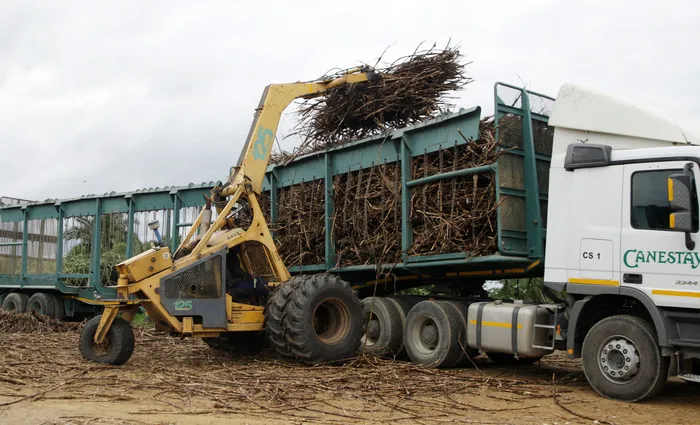Sugar players unite to resolve transformation fund spat

Mechanical loader, loading sugar cane in the truck on sugar cane field in South Coast, Durban. Photo: BONGANI MBATHA/Independent Newspapers.
The SA Farmers Development Association (Safda) and SA Canegrowers have successfully resolved a recent impasse regarding millions of rand in transformation funding.
Sugar industry players in South Africa were last week at loggerheads over the funding, and allegations of fronting and racism against black small-scale growers.
Sugar industry transformation interventions were introduced by the sugar industry in November, 2018 championed by Safda. The total agreed amount of the fund was R1 billion over five seasons, which translated into just over R200 million per season. Contributions making up the transformation fund are extracted from levies contributed by all sugar industry members.
Safda last week accused the SA Canegrowers industry association of “fronting”, and “condemned” what it called “disturbing anti-transformation tendencies”.
Safda executive chairman Dr Siyabonga Madlala said yesterday however that “these crucial transformation interventions would continue in the same format as in previous years, ensuring ongoing support for our farmers by sugar industry partners”. He added that he appreciated the leadership of SA Canegrowers chairperson Higgins Mdluli for facilitating the outcome of their talks.
Madlala said that while the agreed five years lapsed at the end of the 2023-2024 season, which ended on March 31, 2024 the SASA Council approved an extension of the fund for one more season (2024-2025).
Safda put up a proposal suggesting that the funds be treated and disbursed in the same way as they had been in the past five years, especially the component that was influenced by the tons of sugarcane delivered by farmers.
Safda made this proposal so that less time was spent debating the disbursement of a one season’s funding, while the focus could rather be on long-term transformation plans of the industry, beyond the initial five-year plan.
This proposal was not supported by some members of the industry, leading to delays in disbursements that forced farmers to stand up and demand answers.
“The agreement reached today means SASA will go ahead and finalise the delayed disbursements set aside for the current season… While allowing industry leaders time to engage in strategic discussions about future transformation initiatives in this industry,” said Mdlala.
BUSINESS REPORT
Related Topics: